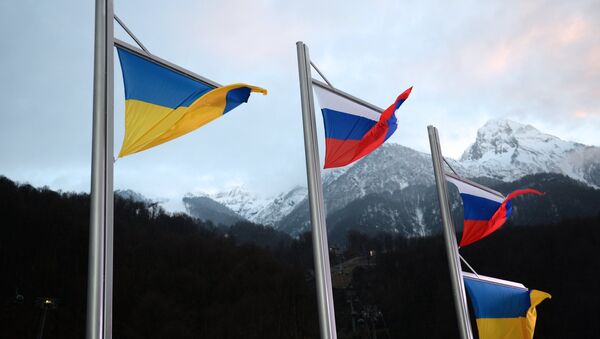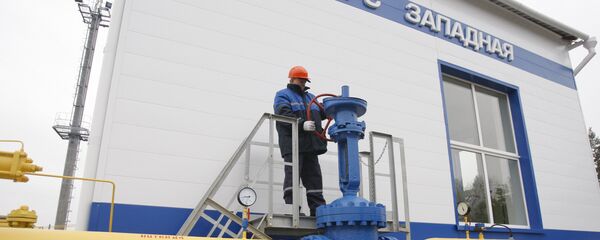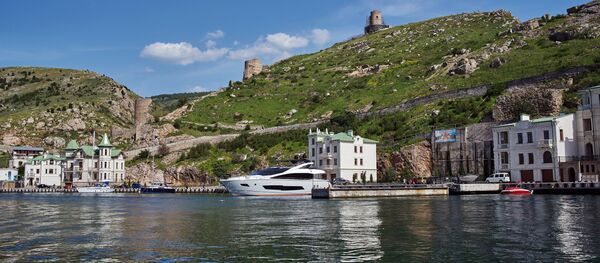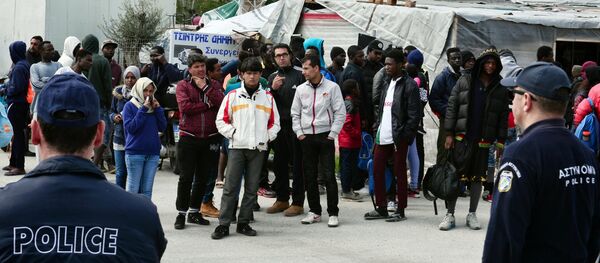The report recalled that "during the Ukrainian crisis, Russia reunited with Crimea, resolved the problem of basing the Black Sea Fleet and blocked Ukraine's membership in NATO for the long term."
"It led to a number of serious new problems," the survey said, referring to Russia as "Ukraine's strategic enemy."
"Enmity took root at the level of political ideology and public consciousness; as a partner, Ukraine has been lost to Russia as a partner for a long time. Kiev will consistently build military and political relations with Western structures without trying to join NATO," the report said.
The authors of the report also called for "consistent efforts" to be made to defuse the conflict in eastern Ukraine's Donbass region, something that they said "requires both a dialogue with Kiev and agreements with the West."
Referring to the survey, Russian political analyst Konstantin Shurov said in an interview with Sputnik that "such hasty conclusions are made simply in line with the current situation, but the situation is changing quickly, especially given the fact that today the entire world is changing very rapidly both economically and politically."
"So I think that it is reckless to make such forecasts. Despite the current negative dynamics, historical prospects for the economic development of the entire territory of Eastern Europe indicate that [Russian-Ukrainian] partnership is possible and that it will be developed. After a while, the parties will come to an understanding that it is necessary to seek common ground," Shurov said.
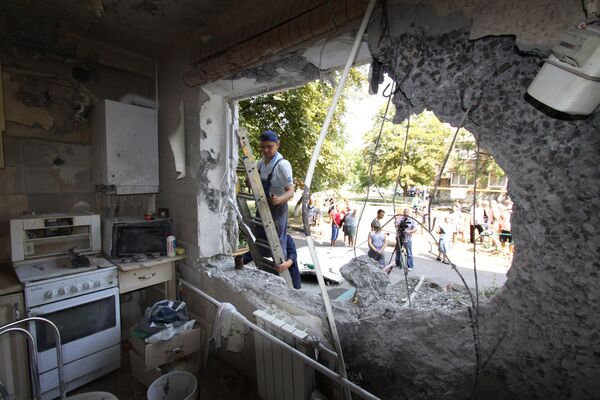
He attributed the negative dynamics in Moscow-Kiev relations to a political choice of current Ukrainian authorities.
"In any case, the Russian side was not the first to make such major steps to break all economic ties with Ukraine. In this situation, Russia has always responded to some actions by Ukraine," he said.
Given "the current situation, where in many sectors, especially in the defense industry, Russia has already moved completely to a closed cycle, as it was in the Soviet Union," Moscow "has practically jeopardized the survival of the remaining high-tech industries and enterprises in Ukraine, including the Yuzhmash, the Antonov aircraft manufacturing company and a number of enterprises in Kharkov," Shurov added.
"That's why I think that the forecasts should be concluded optimistically: yes, the dynamics are negative now, but [Russian-Ukrainian] cooperation is inevitable given how closely bilateral economic, logistics and transport ties are intertwined," he pointed out.
In February 2015, Russia announced that it would sever its "joint program with Ukraine to launch Dnepr rockets and [was] no longer interested in buying Ukrainian Zenit boosters."

